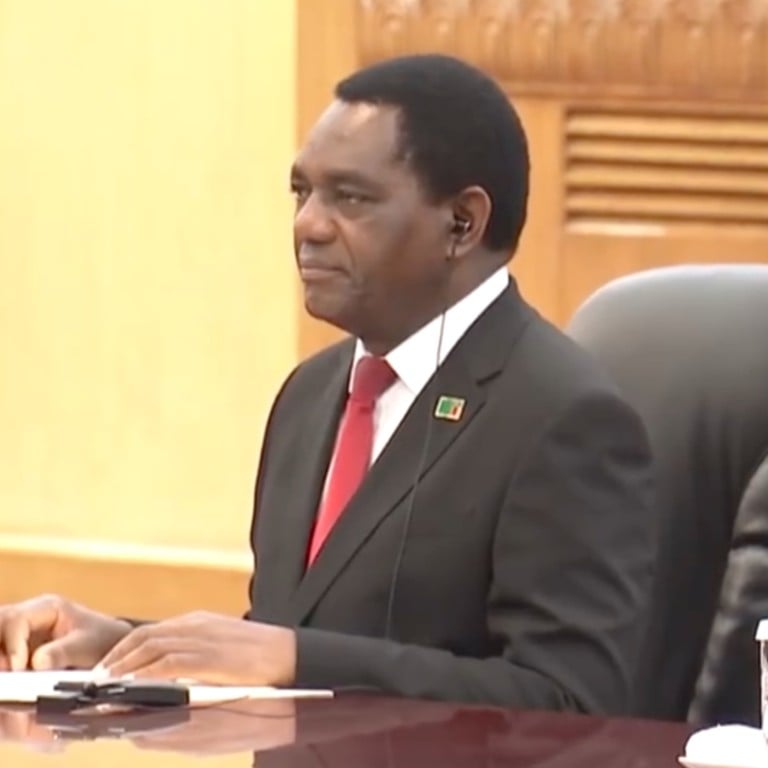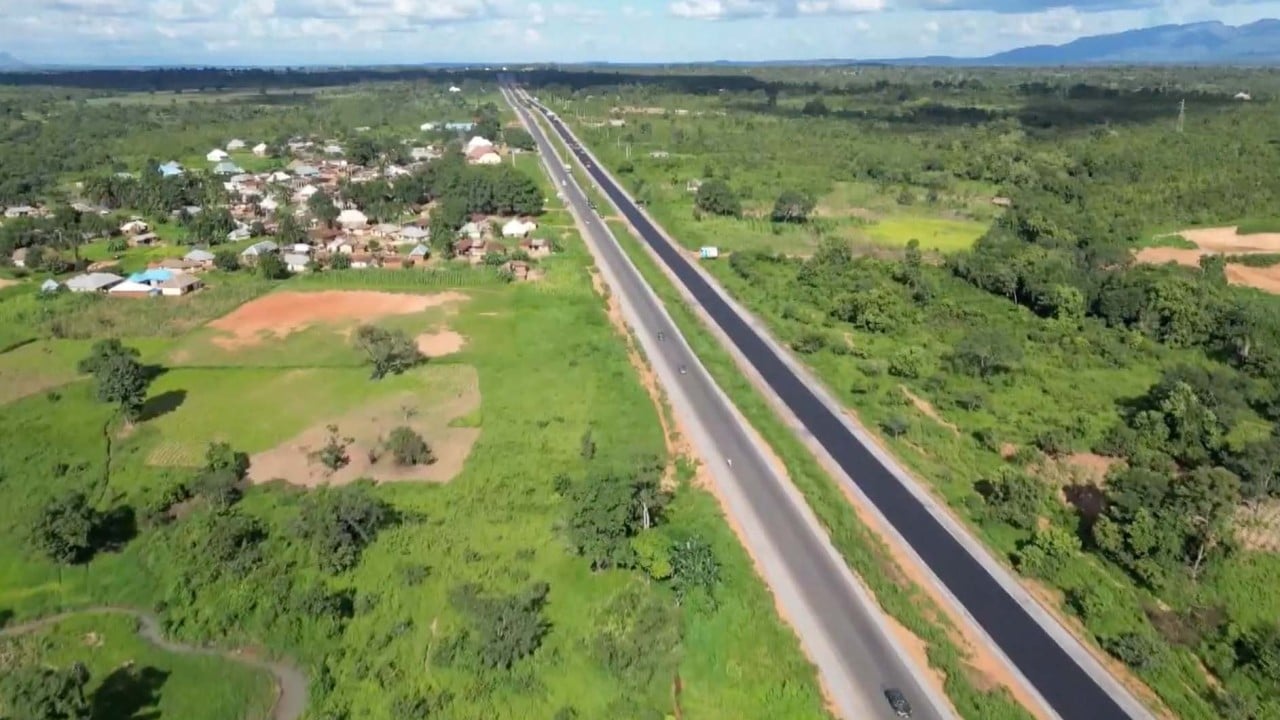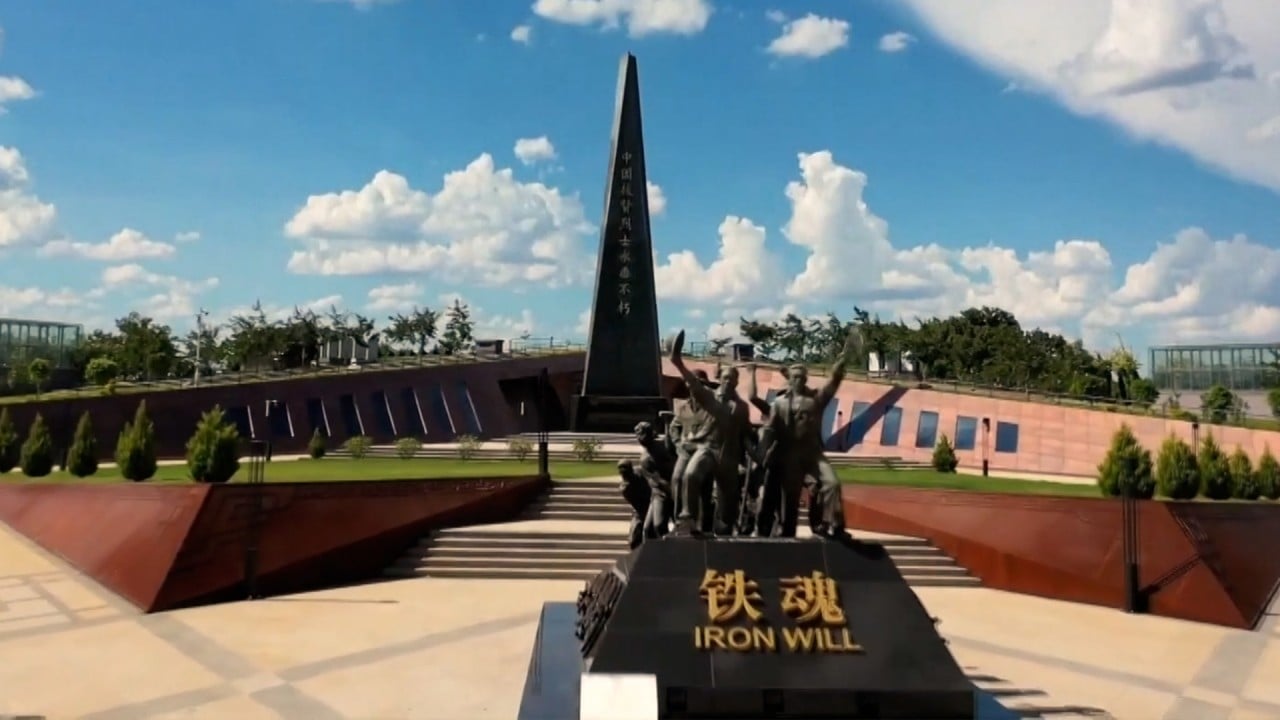
China firms up ties with debt-laden, resource-rich Zambia
- Zambian President Hakainde Hichilema thanks his country’s biggest creditor for helping to resolve loan problems
- Chinese President Xi Jinping says Beijing encourages more of its companies to invest in the African nation
China will expand its cooperation with Zambia in infrastructure and encourage more Chinese companies to invest in the African nation.
Xi said China encouraged more high-quality Zambian products to enter the Chinese market and supported more Chinese-funded companies to invest and start business in Zambia.
China began funding work on the line five decades ago and it is still its largest foreign aid project.
“The Tanzania-Zambia Railway is a symbol of China-Africa friendship, and the people of the two countries have special friendship with each other,” Xi said.
“China has always viewed and developed China-Zambia relations from a strategic and long-term perspective.”
China’s involvement in the railway began in the 1970s as it emerged from the tumultuous years of the Cultural Revolution.
Lusaka was desperate for a railway link to the Tanzanian coast after neighbouring white-controlled Rhodesia (now Zimbabwe) had cut landlocked Zambia’s only outlet to the sea for its main export, copper.
China stepped in with interest-free loans after the United States and Russia refused to fund a new railway on economic grounds.
Zambia became the first African country to default on its external debts in 2020 due to Covid-19 and applied for debt relief under the G20 Common Framework.
In June, China and other bilateral creditors restructured Zambia’s US$6.3 billion in loans, of which US$4.1 billion is owed to China.
Under the deal, China – as Zambia’s largest bilateral lender – has the biggest burden by agreeing to restructure its share – with France, Britain, South Africa, Israel and India providing the rest. Zambia is still negotiating the finer terms of the debt restructuring with individual lenders.
On bilateral ties, Hichilema said: “Zambia is willing to work with China to take the opportunity of the establishment of a comprehensive strategic cooperative partnership between the two countries.”
He said this would deepen the joint construction of the belt and road project and cooperation in various areas including mining, agriculture, economy and trade, science and technology.
He also thanked China for supporting the African Union admission to the G20.
After the talks, the two leaders witnessed the signing of bilateral cooperation documents on the belt and road, green development, the digital economy, investment cooperation, inspection and quarantine.
Chinese consortium to build US$650 million toll road in cash-strapped Zambia
Before arriving in Beijing on Thursday, Hichilema started his six-day trip to China in Shenzhen, meeting officials from Chinese electric carmaker BYD, internet giant Tencent and technology firms Huawei and ZTE.
Zambia signed a memorandum of understanding with Huawei that, according to Hichilema, “will see Zambia fully digitised to benefit our citizens, especially our rural communities”.
A similar agreement was signed with ZTE to set up a smartphone assembly plant in Zambia.
“This will be a game changer that brings many jobs, as we increase digital solutions to citizens through our e-govt division,” Hichilema said in a post on social media platform X.
Zambia is rich in copper and cobalt, two minerals essential for the green energy industry.
“In our bid to make Zambia an industrial hub by value addition to our minerals, we visited BYD, among the world’s largest [electric vehicle] manufacturers,” he said.
Zambia is among just a few African countries that have a positive trade balance with China; exporting goods worth US$2.26 billion to China in 2021 compared to US$951 million in Chinese imports.
Zambia’s main exports to China include raw and refined copper while the African nation buys finished products such as tractors, rubber tyres, and ore processing equipment.



